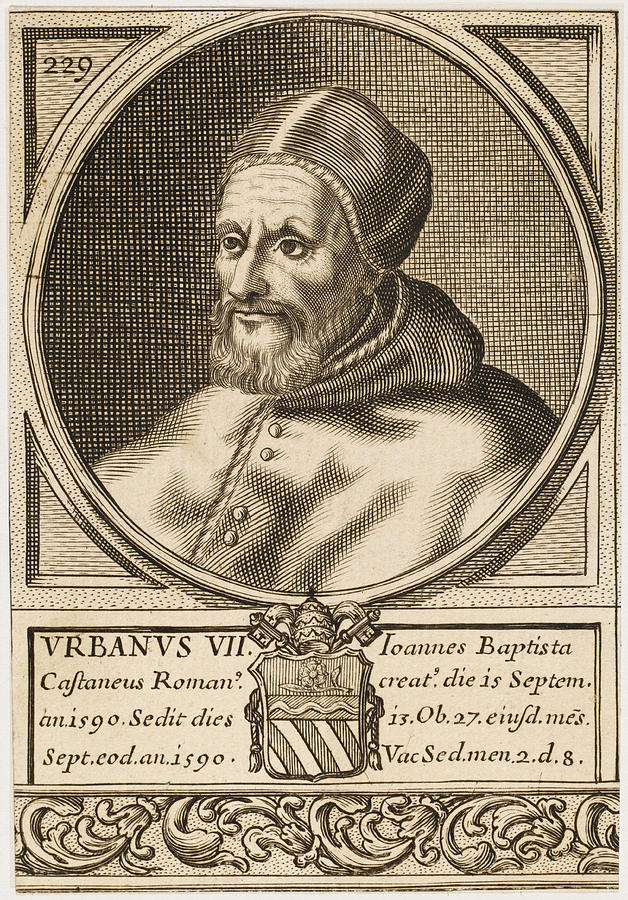Pope Urban VII (1521-1590, born Giovanni Battista Castagna) reigned for only 13 days, ending on September 27, 1590. He passed away from malaria before being consecrated.
Background
Castagna was a highly educated man, having studied at several Italian universities and finally obtaining a doctorate in Civil and Canon Law at the University of Bologna. He served as a governor of various cities before being elevated to the cardinalate.
Papacy
Castagna was elected as Pope Urban VII on September 15, 1590.
His oversight included the world's first public smoking ban, wherein he proclaimed that anyone who consumed tobacco in the form of chewing, inhaling or sniffing in or in the porchway of a church would be promptly excommunicated.
During his tenure, Pope Urban VII also became known for his contributions to charity. These included the subsidization of Roman bakers so they could sell their goods under market price points and the restriction of the purchase of luxury goods for members of his court. He also invested in public works projects throughout the Papal States of Lazio (which included much of Rome), Marche, Umbria and Romagna, as well as parts of Emilia. His rule, therefore, as a concomitant secular and religious leader, was, while very short-lived, also very expansive.
Death
Pope Urban VII died of malaria in Rome on September 27th, 1590. He was buried in the Vatican. His estate went entirely to the support of poor girls.
Legacy
Castagna's reign was a celebration for the people of Italy. His vehement opposition to nepotism was also a prime virtue that elevated him in the Church's and the public's eye for years to come. His prudence and acumen in administrative affairs also made a significant mark in the history of the papacy.

